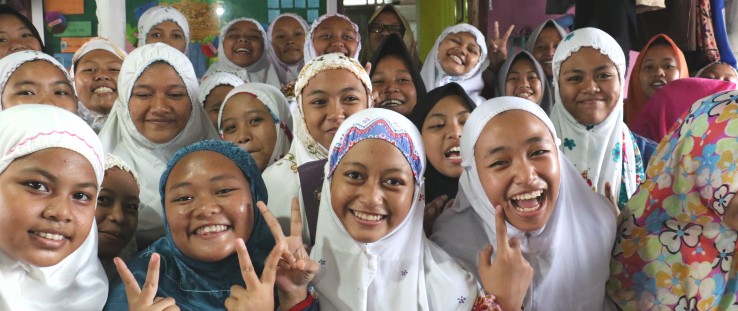 Dorm D residents show their enthusiasm for their new facilities at the Ngalah Boarding School.
Samantha Martin, USAID
Dorm D residents show their enthusiasm for their new facilities at the Ngalah Boarding School.
Samantha Martin, USAID
 Dorm D residents show their enthusiasm for their new facilities at the Ngalah Boarding School.
Samantha Martin, USAID
Dorm D residents show their enthusiasm for their new facilities at the Ngalah Boarding School.
Samantha Martin, USAID
For many of the 300 boarding schools in Pasuruan district in East Java, Indonesia, the noble aim of educating as many students as possible is a messy business.
Schools house from 100 to 3,000 students each in crowded and sometimes unsanitary conditions. Because they are operating with such small budgets, facility upgrades can’t keep pace.
“We accept everyone,” said Kyai Hajji Soleh Bahruddin, the senior religious and educational leader of the Ngalah Boarding School. “A substantial majority of students are poor—children of laborers, farmers and factory workers. The fees we collect can’t cover fixing the problems in the toilets and showers or improving the water. It’s just enough to cover the bare minimum.”
The schools aren’t alone in their losing battle for safe sanitation. Access to basic bathrooms and good hygiene is critical to good health. Without it, students can fall sick constantly with diarrhea or contract hepatitis A. Though Indonesia has made significant progress helping more people access better water and sanitation services, only 22 percent of the country’s 256 million citizens have access to piped water where they live.
In East Java, leaders working alongside USAID are taking a unique approach to the problem. Through IWINS, which stands for Initiative for Water and Sanitation Improvement through Networking Support, USAID works with Indonesia’s foremost faith-based social organization, Nahdlatul Ulama (NU), to create messages to inspire people at the Ngalah School and throughout Pasuruan to be more self-reliant and to change their habits for cleaner, healthier, more productive lives.
IWINS worked directly with 12 communities and three pesantren, or private Islamic boarding schools that traditionally serve poor students. Families in poor economic circumstances will send their boys to the pricier (non-boarding) state schools, so these boarding schools often have a disproportionately high percentage of female students. The hour-long messages were distributed to local religious leaders all over Pasuruan for use in weekly activities. They focused on handwashing with soap and clean water, collecting garbage, avoiding pollution, and being environmentally friendly—messages in harmony with religious teachings.
“I was interested in IWINS precisely because of its approach to teaching the students healthy habits, not just the fact that the facilities would be upgraded,” said Bahruddin, who is 64.
IWINS is USAID’s first collaboration with Indonesian boarding schools on water and sanitation. Previously, the local government only supported upgrades for households. A combination of USAID financial and technical support, community participation and discussion, and NU’s support in creating these messages were all parts of the participatory process culminating in upgraded facilities and healthier behaviors. The collaborative approach also enabled community members, teachers, students and leaders to lobby local government leaders for additional funding.
The success of IWINS paved the way for government buy-in for water and sanitation projects at other schools, including additional pesantren. As a result of USAID’s initial investment and the project’s effectiveness, local governments have committed their own resources to grow the project and help more students. The government is expected to increase the number of communities served from 15 to 57, providing as many as 13,000 more people with improved access to clean water and sanitation facilities.
Long Lines
“We needed to raise community awareness of the problems so that everyone could see the whole picture, learn together and change the culture,” said Arief Lukman Hakim, IWINS project manager.
Throughout the province, schools like Ngalah are particularly susceptible to sanitation problems. One of the dormitories, Dorm D, had just a single all-purpose bathroom facility for over 330 santriwati (female students) ages 12 to 15.
“It was dirty,” said 19-year-old Anis Faridah, an undergraduate student and Ngalah school alumna who volunteers as Dorm D student manager. “There were bugs everywhere, and we didn’t have enough toilets or showers. The wait in line was always long.” Her university is also part of the pesantren wider educational system in Pasuruan.
Pasuruan families face similar problems. Even if they could afford to build new water and sanitation facilities, there are few experts around to maintain them. In this area, one-third of families lack access to clean water and rely on local rivers daily for laundry-washing, bathing, relieving themselves and cooking. These choices can be deadly: Waterborne diarrhea causes over 31,000 deaths annually in Indonesia and has an above-average incidence rate in East Java. Safe drinking water and improved sanitation are directly related to diarrhea prevention.
By the end of 2016, IWINS had reached 7,152 people, helping them build 10 wastewater treatment facilities and six communal water meter systems. Once completed, communities and schools created their own support network, keeping in touch through regular meetings and social media. Together, they help one another ensure that activities and new facilities throughout the network continue running smoothly.
“Usually, the government or an NGO comes in and uses outsiders,” Hakim explained. In the past, communities missed out on learning how to operate new facilities, maintain sanitary conditions and troubleshoot problems.
“Our approach,” he said, “actually involves the community members. The process is not simple, but it helps them take on the responsibilities.”
Feels Like Home
At Ngalah, students, administrators, teachers and IWINS collaborated to select Dorm D for renovation. “This dorm houses our youngest santriwati. These girls needed special attention and care,” said Bahruddin.
Faridah added: “We got to share our ideas for bathroom design and make sure they would really meet our needs.” This included hooks on the walls of the showers for towels and toiletries bags. The students also created a hygiene campaign to promote healthier habits among peers.
Dorm D now has 21 bathrooms, 14 new communal latrines, dedicated laundry and handwashing areas and a proper wastewater treatment system. “Now, we feel more at home,” Faridah said.
The success of IWINS has piqued local government employees’ attention. “[It] not only reached the hundreds of students studying at boarding schools in Pasuruan, but also extended the project’s reach into neighboring communities and even to district government employees,” said Erin McKee, USAID/Indonesia mission director. These employees, she noted, “convinced leadership to provide additional government funding to extend the program to more villages.”
Food and nutrition company PT Nestlé Indonesia is also participating in the initiative to replicate the project in a Pasuruan dairy-farming village, where it sources milk for its products. Nestlé is helping local farmers construct 60 toilets with septic tanks and install a clean water supply system, ensuring that 332 families—and their herds—have access to clean water.
“IWINS is part of our support for the Government of Indonesia’s plans to increase access to basic water and sanitation, especially in communities where the need is greatest,” McKee noted while visiting Ngalah. “Seeing that the girls here are able to live healthier lives by serving as critical contributors in the participatory process is a great indicator of shared success.”
As for Dorm D, Faridah reports: “Everything’s clean and comfortable now. The facilities are great. Even the water’s better. Sometimes, I like being in the shower area even more than I like being in my own dorm room. We study better.” Importantly, the girls are living healthier lives. “We feel a sense of relief.”








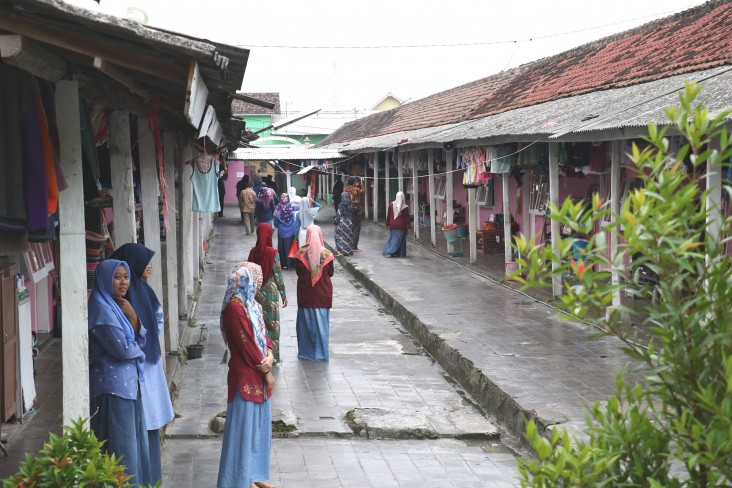
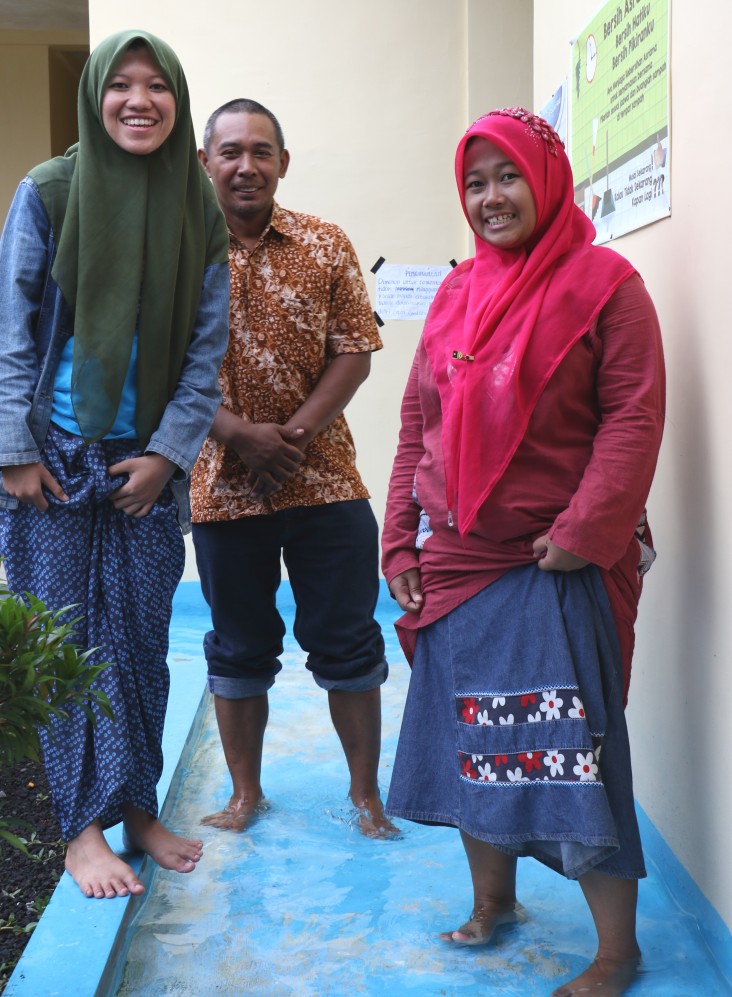
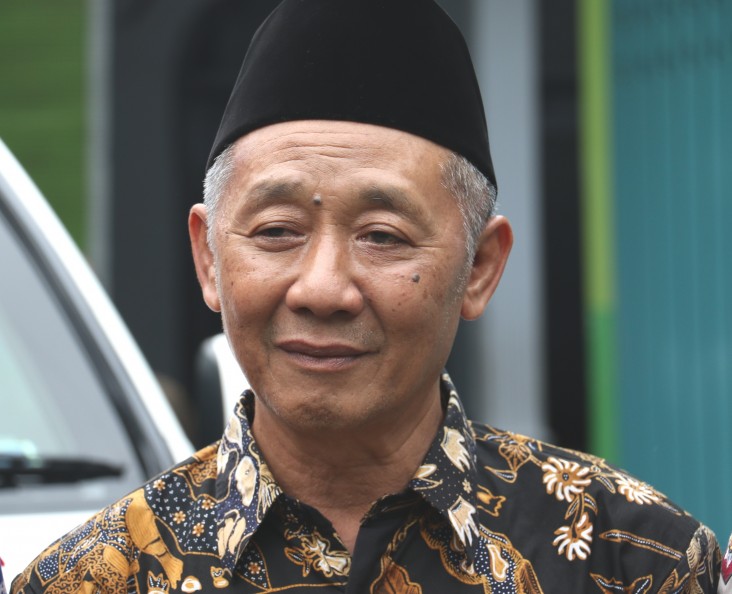
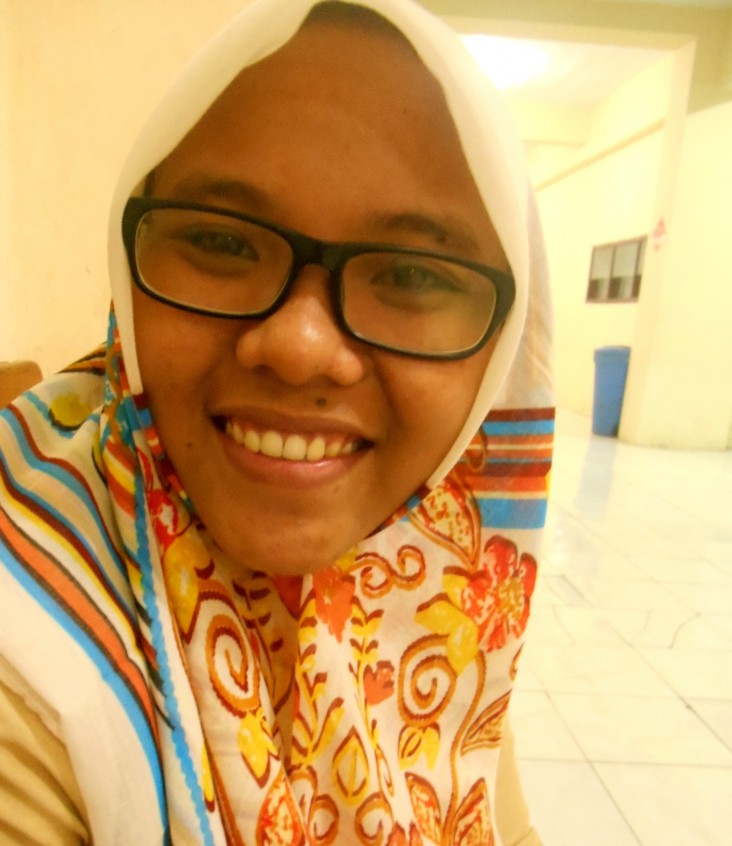
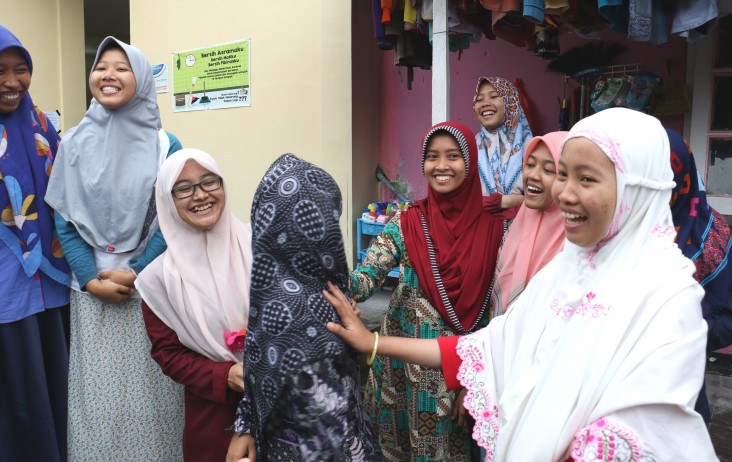
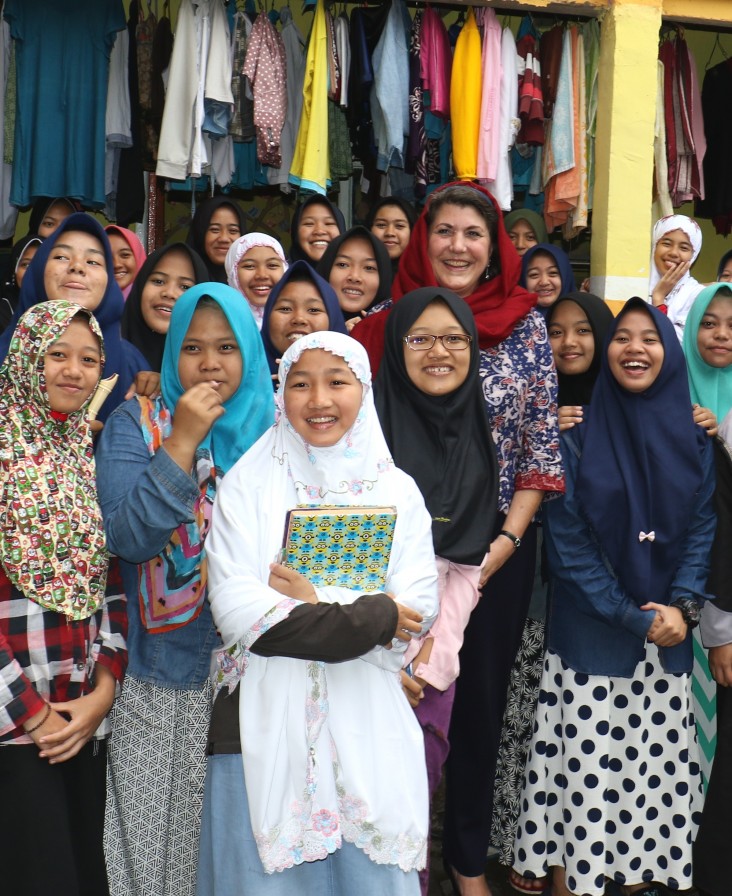
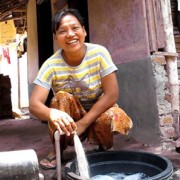
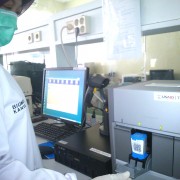
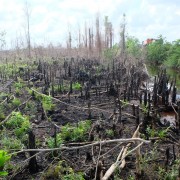
Comment
Make a general inquiry or suggest an improvement.